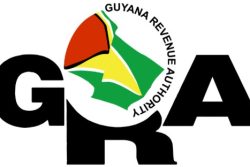Dear Editor,
I return once more to my caution that we need to decolonise our “education” at the onset of our children’s education, starting with the Atlantic Readers that ignored much of the efforts of the previous seventy years.
The Jamaican poet Olive Senior, of mixed heritage, used the activity of “gardening” as an extended trope in her book “Gardening in the Tropics” to analyse well, the brutal colonisation all of us in the Caribbean by the Europeans and their influence in the formation of all our identities. Gardening does involve “rooting out”, discarding” “cultivating”, “nurturing”, “grafting”, “hybridity” and so many activities that are also at work in cultures and relationships in the construction of identities. All of us have been and continue to be “cultivated” whether we like it or not and are, to a lesser or greater extent, been “hybridized” with a “white bias”. The question is whether we will “cultivate” our new generation through the hegemonic ideas of our erstwhile “masters” that evidently linger in the heads of our curriculum developers.
In the Caribbean, the Indians, Portu-guese and Chinese indentureds met the Africans who had been subjected to hundreds of years of European imposition of culture and religion – brutally with whips and chains and then through discursive practices, starting with the school system after “emancipation”. They were expected to inculcate “English culture” even though their African humanity was denied, producing Du Bois’ debilitating “double consciousness”. The Royal Readers in the schools from the 1870’s were English to the core and denounced “savage” Africa. Against all odds, the Africans retained elements of their West African cultures and it was into this hybridised, creolised plantation culture that the new arrivals would be thrown. The indentured servants’ cultures were inevitably influenced by the same plantation environment.
However, in Guyana and the rest of the Caribbean after WWII, people of African origin sought to counter the European hegemonic cultural imposition with the ideologies of anti-colonialism, “Black Power”, “Negritude” and “Pan African-ism”, all of which privileged African-creole culture as the “root” of “national culture”. There was never a comparable Pan-Indian movement, even in majority Indian Guyana, to counter the Creole-centered “national culture”. Yet with independence it was announced that we were “One people; One Nation; One Destiny”. Indians were now defined outside the “nation” as an “ethnic group”.
Reviewing the broad sweep of Carib-bean history, however, Senior sought to make the point that there are no “pure” origins and no “one root” that we can discover on which to construct our Caribbean identity. She borrowed from the Martiniquean Edouard Glissant, the metaphor of the “rhizome” – with its multiplicity of roots that privilege no one root for Caribbean identity. He was consciously reacting against the construct of “negritute” and of “hybridity” that been proposed to describe French Antillean identity. The first excluded all others such as people of Indian and French origin while the latter, acknowledged by Walcott in his Nobel speech in 1992, still privileged the “African root”. It doesn’t appear that the teams that created the Atlantic Readers read Olive Senior, even though it was required reading for “CAPE English B” a few years ago.
Sincerely,
Ravi Dev






